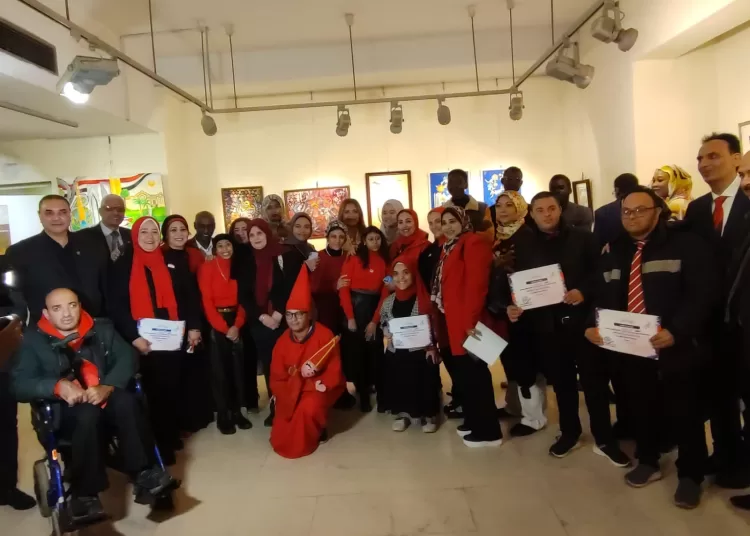The government has placed significant emphasis on supporting and empowering disabled persons, rightfully considering them an integral part of society and a key partner in the country’s development.
Efforts made in this regard have focused on creating a supportive environment that facilitates their social integration across various fields, while also updating legal and regulatory frameworks to ensure their rights to equal opportunities and services.
The government, in collaboration with civil society organisations, has worked on improving the infrastructure of various facilities to cater to the needs of disabled persons, alongside launching training programmes and national initiatives to help them become part of the labour market.
These efforts were meant to maintain social cohesion among various strata of society.
The Cabinet’s Information and Decision Support Centre has recently issued a report where it details the State’s strategies to empower persons with disabilities and promote their social integration.
The report coincided with the International Day of Persons with Disabilities (IDPD), a UN day that is celebrated every year on December 3.
Marking the occasion of the IDPD, President Abdel Fattah El Sisisaid Egypt would continue to support and empower its disabled citizens.
“I extend my heartfelt gratitude to their families for the unwavering support they offer and the belief they have in their children’s extraordinary abilities, a source of pride for us,” the president wrote on social media on Tuesday.
“Citizens with disabilities are a blessing to the nation from Almighty God,” he added.
Egypt was among the first countries to sign the International Convention on the Rights of Persons with Disabilities in 2007.
The 2014 Constitution includes provisions to guarantee their rights in areas, such as health, the economy, social welfare, politics, culture, recreation, sports, and education.
President Sisi designated 2018 as a Year of People with Disabilities, leading to the adoption of the Persons with Disabilities Rights’Law.
The law aims to integrate disabled persons into society, mandating a minimum 5 per cent employment quota for the disabled in both the public and private sectors.
Meanwhile, the National Council for Persons with Disabilities was established in 2019 to safeguard and enhance the rights and dignity of people with special needs, the Cabinet’s Information and Decision Support Centre said in its report.
In 2021, Egypt established the Differently-Abled Fund to support the country’s roughly 11 million citizens with disabilities.
In February of the same year, President Sisi allocated 10 billion Egyptian pounds to the fund.
Last month, the parliament approved an agreement with Italy to provide a €1.8 million grant to enhance the rights of people with disabilities in Egypt.
The Cabinet’s Information and Decision Support Centre’s report also outlined key services provided to persons with disabilities, including an annual allocation of more than 8.6 billion Egyptian pounds through the Solidarity and Dignity programme. The programme offers services to around 1.2 million people with disabilities.
Moreover, around 57,800 persons with disabilities have been employed in the private sector since 2014.
Roughly 1.2 million integrated service cards have been issued, providing persons with special needs with access to public services and facilities, since that date.
More than 13,000 people with disabilities have benefited from the Ata’a Fund, which aims to supportdisabled individuals.
The government has also worked on making transportaccessible for disabled people, with 14 train stations and 35 metro stations now tailored to accommodate them.
Around 587 deaf and hard-of-hearing students have been integrated into 13 universities, supported by 83 sign language interpreters at a cost of 2.9 million Egyptian pounds annually.
Additionally, 900,000 Egyptian pounds worth scholarships are provided annually for students with visual disabilities across 19 public universities.
In recent years, Egyptlaunched several initiatives to protect and improve the lives of persons with disabilities, including accessibility improvements, anti-bullying laws, and specialised training programmes to support their integration into society and the labour market.
The United Nations Economic and Social Commission for Western Asia cited Egypt’s commitment to enhancing the rehabilitation, protection, integration, and participation of persons with disabilities in all aspects of life.
This commitment was reflected in the 2014 Constitutional amendments, the declaration of 2018 as the Year of Persons with Disabilities, and the passing of the Disability Rights Law, the commission said.






Discussion about this post